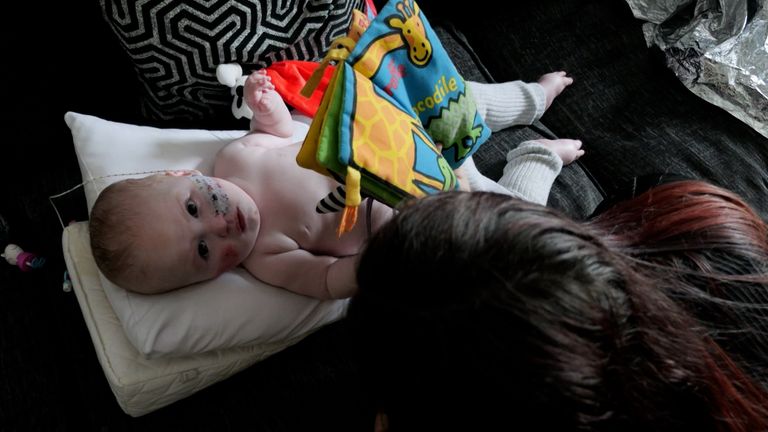NHS doctor on why he's leaving 'broken system' - as British medics increasingly targeted by overseas recruiters
Dr Tom Petrie is packing up his stethoscope. It goes into his suitcase alongside the framed family photographs and other mementoes to remind him of the life he is leaving behind.

Dr Petrie is swapping Leicester for Darwin in Australia.
After just a year as a junior doctor, he's had enough. He says he can't work in a broken healthcare system anymore.
"I'd be dealing with a critically ill patient and having tasks coming through on my phone saying that a patient on the other side of the hospital needs me," Dr Petrie explains.
"But I know deep down that I won't get to them on that shift because they're 43rd in my list and I've got patients that are in front of them because they're more unwell.
"And you go home after your shift and although you're exhausted, you can't sleep.
"You're thinking about every single decision you've made. You're worried that you've made a mistake because you're so tired and stressed."
Dr Petrie says it's not about the money. Instead, it's the lack of respect and the poor training prospects.
But ultimately it is because he can't care for his patients in the way that they deserve. His decision to walk out on the NHS and begin a new life on the other side of the world was not an easy one to take. He feels conflicted.
"I do feel guilty in a way, because I want to be able to provide for the NHS," he says. "I want to make the NHS better single-handedly.
"But I can't sacrifice my own happiness, my own mental health, my own physical health. Just because I'm working within a broken system."
Medicine runs in the Petrie family. Tom's father Peter - a retiring GP - says he would dissuade any future grandchildren from becoming doctors.
"There doesn't seem to be a value to doctors now," he says.
The relationship between doctor and patient has changed, too.
He explains: "Patients were always incredibly grateful. Now, by the time they get through to the doctor, there's an element of aggression because they've had to fight to get there.
"So the whole nature of the relationship is different."
The pandemic, successive winter crises and 20 months of industrial action has taken its toll on the NHS, its patients and its workforce. These are some of the reasons British medics are being targeted by overseas recruitment agencies.
Mike Killick, CEO of Triple 0 Recruitment, a health professional recruitment agency based in New Zealand, says the number of enquiries from UK doctors is increasing.
"We've definitely seen an increase in the last two years or so particularly around the junior doctors, [with] the strikes that are going on over in the UK, which obviously makes a bit of uncertainty.
"But again, [there's a] natural progression with the borders having opened up post-COVID."
It's not just junior doctors, though - Mr Killick says there's growing interest from senior doctors as well.
"There's a lot of enquiries starting to lift up around there for them too."
Research carried out by The Nuffield Trust shows £2.6bn was spent on undergraduate clinical education in England in 2022-23. With a further £2.5bn spent on postgraduate medicine and dentistry.
But retention of junior doctors is hard. In England, only 56% of doctors in 'core training' - that's the period after finishing their two foundation years - still work in the NHS eight years later. And around half of that loss is seen within the first two years.
A pay deal has been put to the junior doctors by the new Labour government. But health policy experts warn more money alone will not fix the problem.
Dr Billy Palmer, a senior fellow at thinktank The Nuffield Trust, warned: "We're in uncharted territories to some degree here, this is a large amount of money that's been put forward and represents a significant increase in pay.
"What we don't know is the extent to which it will solve some of the key issues, so that early career retention, we don't actually know what effect this size of pay deal will have."
Dr Tom Petrie hopes one day to return to the NHS but only when he thinks he can better care for his patients. That could be years from now.
A Department of Health and Social Care spokesperson said: "The NHS is broken, and the secretary of state has been clear he wants to work with junior doctors to get it back on its feet and improve working conditions.
"The deal being put to doctors will increase pay for junior doctors and see the BMA, NHS England and government work together to improve conditions, including by reviewing the current rotation system."
-SKY NEWS







